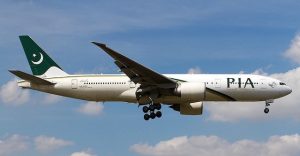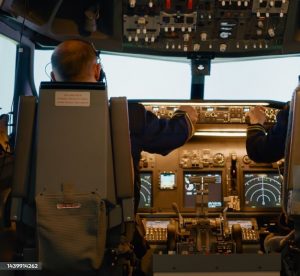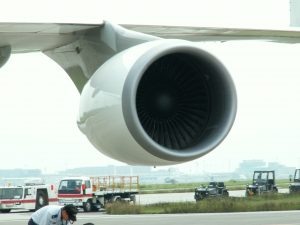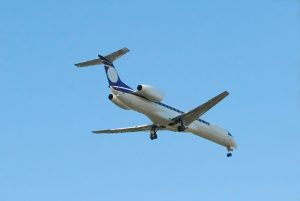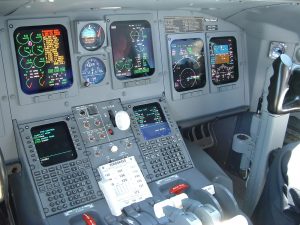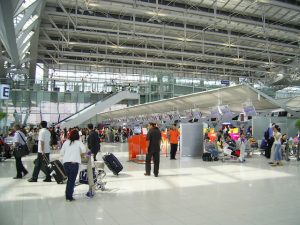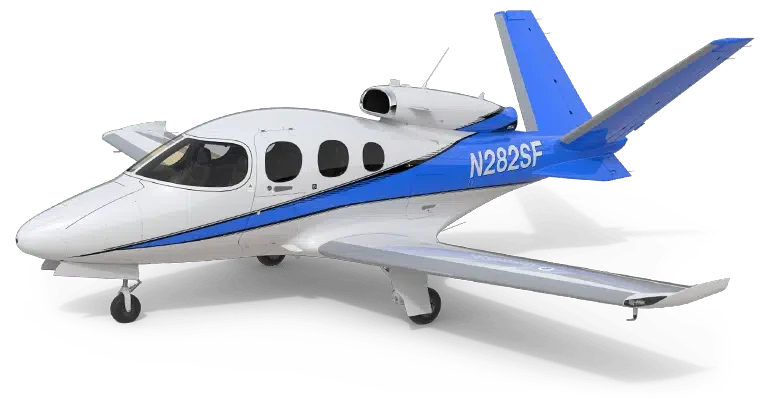Understanding Safety Management Systems (SMS) in Airline Pilot Standards (APS) Courses
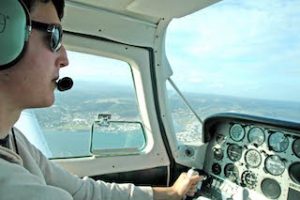 Safety Management Systems (SMS) are essential in aviation, ensuring a structured approach to managing safety risks. Integral to Airline Pilot Standards (APS) courses, SMS equips pilots with the knowledge and skills to maintain high safety standards in operations. This article delves into the significance of SMS in APS training, its core components, and its impact on enhancing aviation safety.
Safety Management Systems (SMS) are essential in aviation, ensuring a structured approach to managing safety risks. Integral to Airline Pilot Standards (APS) courses, SMS equips pilots with the knowledge and skills to maintain high safety standards in operations. This article delves into the significance of SMS in APS training, its core components, and its impact on enhancing aviation safety.
Importance of SMS in Aviation
Aviation is inherently complex and involves numerous risks. From mechanical failures to human errors and environmental factors, the potential for accidents and incidents is significant. SMS provides a proactive framework to identify, assess, and mitigate these risks. It moves beyond reactive measures, focusing on preventing accidents before they occur.
Key components of SMS
SMS comprises 4 main components:
- Safety policy
- Safety risk management
- Safety assurance
- Safety promotion
Each plays a crucial role in fostering a culture of safety within aviation organisations.
1) Safety policy
The foundation of SMS, the safety policy, sets the organization’s commitment to safety. It includes a clear statement of safety objectives and the responsibilities of all personnel. In APS courses, pilots are taught the importance of adhering to these policies and ensuring their actions align with the organisation’s safety goals.
2) Safety risk management
Safety Risk Management (SRM) involves identifying hazards, assessing risks, and implementing measures to mitigate them. Pilots learn to use various tools and techniques to recognize potential threats and assess their severity and likelihood. This proactive approach enables pilots to take appropriate actions to prevent incidents.
3) Safety assurance
Safety Assurance (SA) ensures the effectiveness of safety measures. It involves monitoring and evaluating safety performance through audits, inspections, and continuous improvement processes. APS courses train pilots to participate in safety assurance activities, providing feedback and suggestions for enhancing safety measures.
4) Safety promotion
Safety promotion focuses on creating a safety culture within the organisation. It includes training, communication, and awareness programs to ensure all personnel understand their role in maintaining safety. In APS courses, pilots are encouraged to actively engage in safety promotion activities and share their experiences and knowledge with peers.
Integrating SMS into APS training
The integration of SMS into APS courses ensures that pilots are well-versed in safety management principles from the outset of their careers. This integration involves both theoretical and practical training, providing pilots with a comprehensive understanding of SMS and its application in real-world scenarios.
1) Theoretical training
Theoretical training covers the fundamental concepts of SMS, including its components, processes, and regulatory requirements. Pilots learn about risk management models, safety performance indicators, and the importance of reporting systems. This knowledge forms the basis for understanding how SMS contributes to overall safety in aviation.
2) Practical training
Practical training involves applying SMS principles in simulated and real-flight operations. Pilots participate in exercises that mimic various scenarios, allowing them to practice hazard identification, risk assessment, and decision-making. This hands-on experience is crucial for developing the skills needed to manage safety effectively.
Role of technology in SMS
Advancements in technology have significantly enhanced the implementation of SMS in aviation. Modern tools and systems provide real-time data and analytics, enabling more accurate risk assessments and quicker responses to potential threats. APS courses incorporate training on these technologies, ensuring pilots are proficient in using them to enhance safety.
Data-driven decision making
Data-driven decision-making is a key aspect of modern SMS. Pilots are trained to analyze data from various sources, such as flight data recorders, weather reports, and maintenance logs, to identify trends and potential hazards. This approach allows for more informed decisions and proactive measures to mitigate risks.
Automation and safety
Automation plays a significant role in enhancing safety in aviation. Advanced cockpit systems and autopilot technologies reduce pilot workload and minimize the potential for human error. APS courses emphasize the importance of understanding and effectively using automation to support SMS objectives.
Impact of SMS on aviation safety
The implementation of SMS has had a profound impact on aviation safety. By fostering a proactive safety culture, SMS has contributed to a significant reduction in accidents and incidents. APS courses, by incorporating SMS training, ensure that pilots are equipped to uphold these high safety standards throughout their careers.
Reducing human error
Human error is a leading cause of accidents in aviation. SMS addresses this issue by providing pilots with the tools and training needed to recognize and mitigate potential errors. Through continuous learning and improvement, pilots can enhance their decision-making and operational skills, reducing the likelihood of mistakes.
Enhancing communication and collaboration
Effective communication and collaboration are essential for maintaining safety in aviation. SMS promotes a culture of open communication, where pilots and other personnel can freely report hazards and safety concerns. APS courses teach pilots the importance of clear and concise communication, both within the cockpit and with ground personnel.
Continuous improvement
A key principle of SMS is continuous improvement. By regularly reviewing and updating safety measures, aviation organizations can adapt to changing conditions and emerging threats. APS courses instill this mindset in pilots, encouraging them to actively seek ways to enhance safety throughout their careers.
Regulatory requirements and SMS
SMS is mandated by various aviation regulatory bodies, including the International Civil Aviation Organization (ICAO) and the Federal Aviation Administration (FAA). These regulations require aviation organizations to implement and maintain effective SMS programs. APS courses include training on these regulatory requirements, ensuring that pilots understand their obligations and the importance of compliance.
ICAO standards
The ICAO has established global standards for SMS implementation. These standards provide a framework for aviation organizations to develop and maintain effective safety management practices. APS courses cover these standards, helping pilots understand the international context of SMS and its role in global aviation safety.
FAA regulations
In the United States, the FAA mandates SMS for certain aviation operations. These regulations outline the requirements for SMS implementation, including hazard identification, risk management, and safety performance monitoring. APS courses ensure that pilots are familiar with these regulations and understand their role in maintaining compliance.
Future of SMS in aviation
The future of SMS in aviation looks promising, with continued advancements in technology and an increasing emphasis on safety. As new challenges and threats emerge, SMS will evolve to address them, ensuring that aviation remains one of the safest modes of transportation.
Emerging technologies
Emerging technologies, such as artificial intelligence (AI) and machine learning, are expected to play a significant role in the future of SMS. These technologies can enhance data analysis, predictive modeling, and decision-making processes, providing more effective tools for managing safety risks. APS courses will likely incorporate training on these technologies, preparing pilots for the future of aviation safety.
Global collaboration
Global collaboration is essential for addressing the complex challenges of aviation safety. By sharing data, best practices, and safety insights, aviation organizations can collectively enhance their SMS programs. APS courses emphasise the importance of collaboration, encouraging pilots to participate in global safety initiatives and contribute to the continuous improvement of aviation safety.
Practice safety culture
Safety Management Systems (SMS) are a cornerstone of aviation safety, providing a structured approach to managing risks and preventing accidents. The integration of SMS into Airline Pilot Standards (APS) courses ensures that pilots are equipped with the knowledge and skills needed to uphold high safety standards throughout their careers. By understanding the key components of SMS, the role of technology, and the impact of regulatory requirements, pilots can effectively contribute to a proactive safety culture. As aviation continues to evolve, the principles of SMS will remain essential, guiding the industry towards a safer and more secure future.


